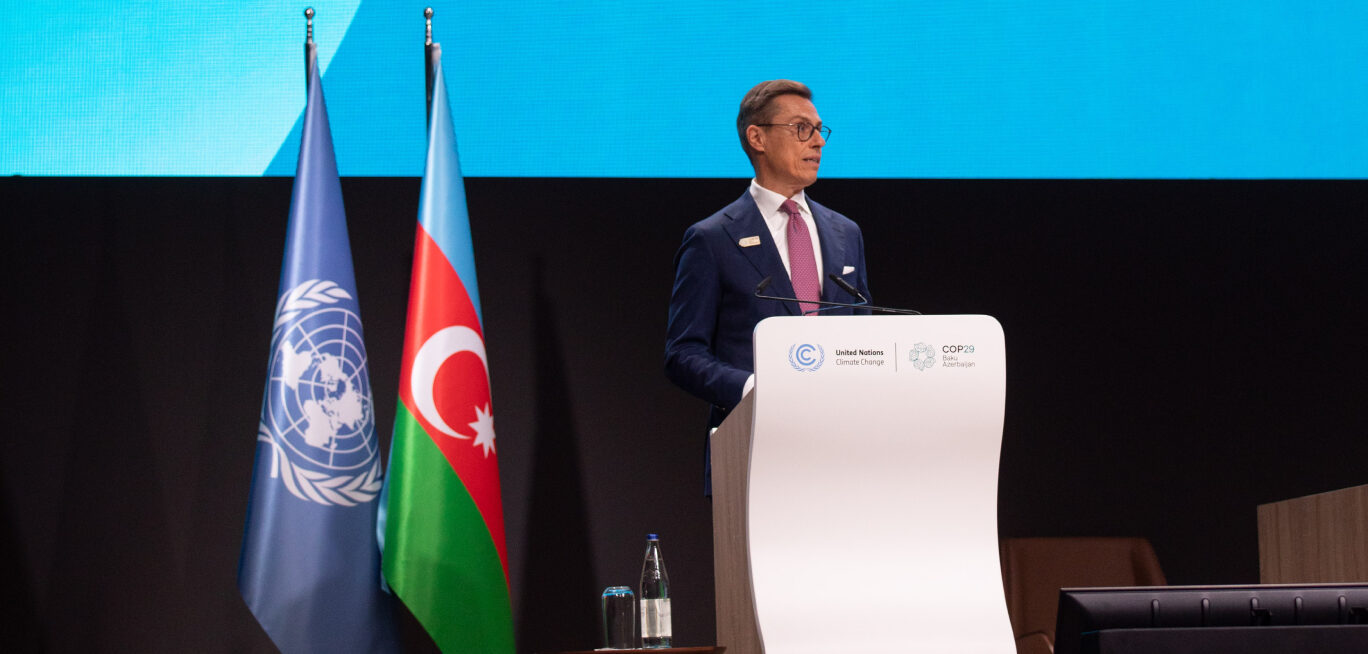Check against delivery
Mr. President, Excellencies, Colleagues,
In the age of growing multipolarity, we need multilateralism more than ever before. Climate change is a litmus test for multilateralism.
If we fail this test, efforts to address other global challenges – such as sustainable development, technology and demography – will be in vain. And if we fail to limit the increase of global temperature, future generations will be left with a world with more pandemics, hunger and conflict.
At the same time, we must ensure that climate action is aligned with the broader development agenda. I would also like to emphasise the importance of women and youth in the fight against climate change.
In my speech at the UN General Assembly a few weeks ago, I argued for the need to reform multilateral institutions. I also suggested specific measures to reform the UN Security Council. The traditional powers in the Global West must give more agency to the global majority.
The choice is binary: multipolar and transactional disorder or multilateral cooperative order. Without changing the current power balance, I am afraid the former will prevail over the latter.
Growing influence of formats such as G20, where representation better reflects the global realities, is welcome. But taking on more power in global decision-making should also mean taking on more responsibility.
Countries which seek to upgrade their global influence to reflect modern realities, cannot demand that the global responsibilities are forever based on the circumstances of the early 1990’s. The largest emitters and the largest economies will determine the direction of the whole planet.
Reflecting on these developments, I would like to underline three points on where I think this COP29 is pivotal:
Firstly, we all have to take more responsibility for reducing emissions. Last year in Dubai, we took a crucial step by agreeing on the transition away from fossil fuels. Now, we need to turn our promises into practice, as we prepare our new Nationally Determined Contributions ahead of COP30 in Belem. It is crucial that especially the G20 members show leadership by setting the most ambitious targets possible, in line with the 1.5 degree limit.
Secondly, we all have to take more responsibility for climate finance. The New Collective Quantified Goal (NCQG) needs to be both ambitious and achievable. It has to reflect the current global economy and sources of emissions, not the situation more than thirty years ago. Finland, as part of the EU, remains committed to supporting developing countries in their climate action. We want to mobilise funding for countries which need it the most. In this context, I am pleased to announce Finland will be providing additional funding to the Systematic Observations Finance Facility (SOFF), to help strengthen adaptation and build resilience especially in the Least Developed Countries and Small Island Developing States.
Thirdly, we all have to take more responsibility for the future generations and to succeed, we need three things to happen:
First, we need targets and legislation on both the national and international levels.
Second, we need money, in other words public and private finance.
Third, we need technological innovations.
And yes, all three are needed together. You cannot regulate or pay yourself out of the climate crises. Regulation sets the target. Finance creates the conditions for innovative technologies.
Here in Baku, I am really looking forward to explore how these things can be achieved, together.
Thank you.

